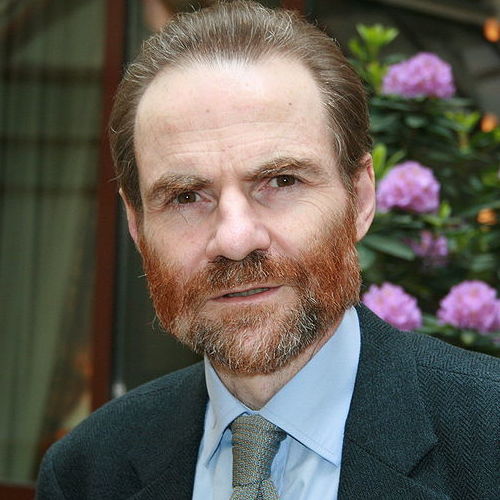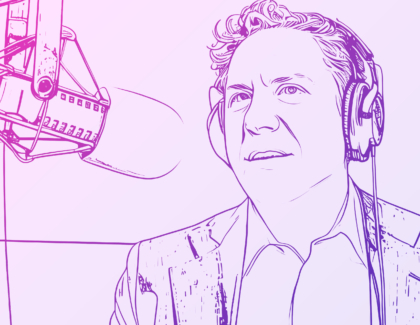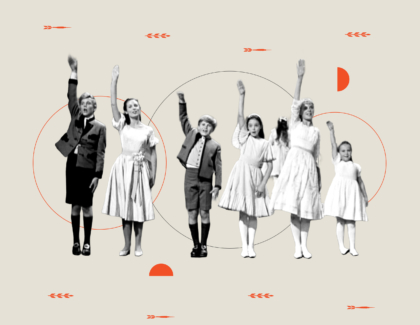Sign up for the daily CJR newsletter.
What does Brexit have in common with the Trump phenomenon? According to author and historian Timothy Garton Ash, they’re both symptoms of increasingly polarized societies, which can be attributed, at least in part, to the media. In his latest book, Free Speech: Ten Principles for a Connected World, Garton Ash outlines the requirements for a free and open society, one of which is an uncensored, diverse, and trustworthy press. Last week, during a talk at the Columbia Journalism School, Garton Ash floated the idea that Britain and the US are gradually ceasing to have the media they need for democracy.
In making his argument, Garton Ash harks back to the 5th Century B.C., when 6,000 citizens of Athens would gather to debate the political choices of the day on a slope at the foot of the Acropolis. In modern society, he says, this public square, where people enjoyed free speech for democratic self-government, has been reincarnated in the form of newspapers, television, websites, and social media, which are now being divided up into information cocoons, echo chambers, and filter bubbles. CJR caught up with Garton Ash after his talk to find out how we ended up here and what, if anything, can be done about it. The following interview has been edited for length and clarity.
What similarities do you see in the British and US media landscapes that have contributed to Brexit and the Trump phenomenon?
What we now face in the age of what I call Trumpery, or in Brexit, is that we have this amazing proliferation of uncensored, free, commercially-competing media, but they’re less and less doing [their] job because you have this echo-chamber effect. In the Brexit debate, the narrative of national liberation prevailed over the facts and all the evidence and all the arguments of the experts, which were dismissed. Something of the same kind, it seems to me, is happening in the American media in this presidential campaign. There’s a Clinton bubble and a Trump bubble. In the Trump bubble you have Fox News, Rush Limbaugh, talk radio, Breitbart, and your Facebook friends. In the Clinton bubble you have MSNBC, NPR, The New York Times, and your Facebook friends. We’re off in these different echo chambers. In both echo chambers there’s a danger that facts give way to narrative, and that’s profoundly corrosive of democracy.
Do you think this polarization is caused by the media or is it a symptom of a bigger issue?
The noble American cliche is “the marketplace of ideas,” and my argument is that we are seeing a market failure in the marketplace of ideas. The public good of news in the public square is not being satisfactorily delivered. To that extent, I think it is a media failure and it comes from the sheer proliferation of platforms and sources of news, [and] from the collapse of the traditional business model—particularly newspapers. There’s incredibly fierce commercial competition, which means everyone is shouting for eyeballs and clicks and attention. [It] means not just “if it bleed, it leads,” but also that “if it roars, it scores.” So you get shouting from both sides. Instead of people in the public square having a debate with all voices being heard, you’ve got two teams, one shouting from one side of the public square and one shouting from the other.
Having said that, you can’t blame it all on the media, obviously, because the fact is there are real interests and real grievances behind this. There are a lot of people who have done very badly out of globalization who feel left behind and excluded and, in some sense, they are expressing those grievances too.
Do you think there is enough good local reporting on these people who feel excluded?
It’s so easy to blame it on The Sun and Rupert Murdoch and on Nigel Farage, but I think we have to interrogate ourselves about what we got wrong, and one of the things we got wrong [in covering Brexit] was not reporting enough [on] people living in the post-industrial towns of Northern England and the poorer parts of England and Wales who weren’t benefiting from globalization, who weren’t benefitting from Europe, whose familiar worlds were being changed by immigration, who no longer had good jobs. Similarly in the United States, someone used a nice phrase “the Rust Belt Brexiteers,” and I think that’s actually spot on. The job of journalism was to report this, to analyze it, to understand it, and what we did as we were beginning to cut budgets, you know, we cut those jobs. We didn’t have the labor reporters and the north of England reporters and, of course, every journalist wanted to do the Middle East or Westminster or be a columnist. So I think we have to start with that self-criticism.
Do you think it’s the job of big news organizations like The Guardian and The New York Times to do local reporting—since they’re also trying to cater to the global community now—or do you think it should be smaller, local organizations?
I think if you are really trying to be a national medium, you absolutely should [cover local news]. If 52 percent of your country is voting in a way which all your coverage and virtually all your opinion pages suggest is crazy, you should be trying to understand that and not just trying to understand Syria and climate change.
In your book you discuss trust in media as an essential component to democracy. In the US, a recent poll shows that trust in the media is at an all-time low. What do you think is causing that and what can media organizations do about it?
I believe that there are some questions where we have to do more work, more reporting, more investigation to understand what that’s really about, and I suspect it may vary from country to country. One [thing] is the denunciation of the mainstream media, or the “liberal media”, something which is repeated endlessly on Fox News or Breitbart and now by Donald Trump. I think that does undermine confidence. But another part of it is that journalists are often regarded as part of this metropolitan, liberal, remote elite. Not without some reason because actually there is a Westminster bubble, for example, and there is a Washington bubble, and there is a whole class of journalists who are closer to politicians of all parties, and other metropolitan journalists, than they are to anything else. But those are only a couple of [factors]. Another one would be about how media is separating out into echo chambers and polarizing. Can we demonstrate to what extent that is causing the polarization in society or is reflecting it? Is it correlation or is it cause?
Where should journalists draw the line between balanced reporting and the dangers of “false equivalence”? Why is that important?
It’s funny because I was called out on this yesterday because I was pointing out that The New York Times, faced with the danger of Trump, has become not only very outspoken in its editorial/op-ed pages, but also on its news pages. Using the word “lie,” “lying,” “liar,” which is extraordinary for The New York Times. On the other hand, I was criticizing the BBC for what I call “fairness bias”–for being too neutral. And then someone said to me, “You can’t have it both ways, which is it?”
The answer is, we’re all trying to work this out. What is the balance? I think The New York Times is a great example of this …. Once we’ve worked out what the new normal is, what the new balance of journalism is, I think we should be told. I think in six months time, The New York Times should sit down and tell us, “Hey, these are the new terms of engagement.” For me, as a disciple of George Orwell, the key quality is honesty in leveling with the reader. As a political writer, I have an unwritten contract with the reader. That may be that I strive to be impartial. Or it may be that I’m very partial and partisan, but I’m honest about it. Or it may be Jon Stewart on The Daily Show, [who’s] a satirist. But that’s fine, as long as you know what the contract with reader is and you honor [it].
What should Facebook be doing to promote the idea of “more free speech and better free speech”? What role should news organizations play in that process?
I think the issue is this: Facebook is now becoming, in effect, an editorial platform because more and more people, particularly digital natives, are using their Facebook news feed as a primary source. I think we need, urgently, a conversation with what I call in the book, the private superpowers—the Googles, the Facebooks, the Twitters, also Amazon and Apple—about what the terms are. The platforms are kind of leery of even making the first step in that direction because then they’re going to be held accountable. I think we have to demand that a bit because otherwise it won’t happen. Facebook and Google and Twitter are very responsive to large-scale, visible, and audible user pressure.
Some people in the media have called for news organizations to be granted special privileges that exempt them from Facebook’s normal moderation strategy. What is your view of that?
It’s like my point about the unwritten contract. I think we just need to know what’s going on here. I wouldn’t for a moment want to prescribe because there are going to be multiple variants on that, but some sort of clarity—particularly in something as dominant as the Facebook news feed. The other thing is, Facebook is in a position vis a vis legacy media that China is towards Europe. They can divide and rule. At the moment, even really big players like the Times and The Guardian are going slightly cap in hand to Facebook to have this conversation, and Facebook has the upper hand. It’s a collective action problem. If there was more solidarity between the media companies, they together have something that Facebook really needs. Facebook need their content.
Has America ever needed a media defender more than now? Help us by joining CJR today.







